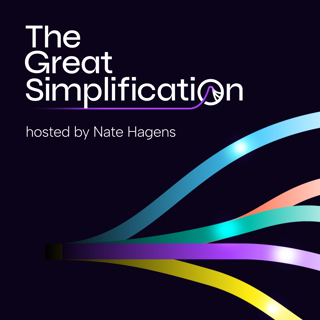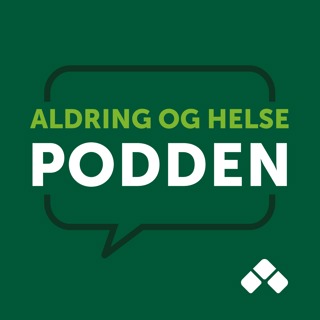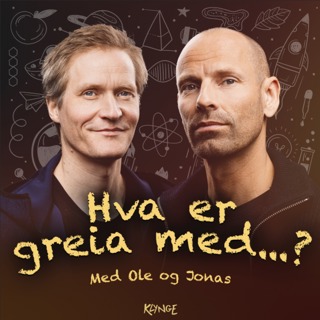
Timothée Parrique: "Degrowth: Slow is the New Cool"
On this episode, we meet with social scientist and researcher at the School of Economics and Management of Lund University, Timothée Parrique. What is degrowth, and how will it help define our future? Parrique explains how the path to societal degrowth might unfold and the social and physical obstacles we may encounter on our way there. About Timothée Parrique: Timothée Parrique is a social scientist, originally from Versailles, France. He is currently a researcher at the School of Economics and Management of Lund University (Sweden). He holds a PhD in economics from the Centre d'Études et de Recherches sur le Développement (University of Clermont Auvergne, France) and the Stockholm Resilience Centre (Stockholm University, Sweden). Titled "The political economy of degrowth" (2019), his dissertation explores the economic implications of degrowth. Tim is the author of Ralentir ou périr. L'économie de la décroissance (September 2022, Seuil), a book adaptation in French of his PhD dissertation. For Show Notes and Transcript visit: https://www.thegreatsimplification.com/episode/32-timothee-parrique
17 Aug 20221h 19min

Daniel Schmachtenberger: "Bend not Break #3: Sensemaking, Uncertainty, and Purpose"
On this episode we meet with founding member of The Consilience Project, Daniel Schmachtenberger. In Part 3 of their series, Schmachtenberger and Hagens explore metanarratives. Why are they threatening to various sections of society? Further, Schmachtenberger helps us understand how we can take in the systemic metacrisis facing humanity in ways that grant us agency, rather than despair. About Daniel Schmachtenberger: Daniel Schmachtenberger is a founding member of The Consilience Project, aimed at improving public sensemaking and dialogue. The throughline of his interests has to do with ways of improving the health and development of individuals and society, with a virtuous relationship between the two as a goal. Towards these ends, he's had particular interest in the topics of catastrophic and existential risk, civilization and institutional decay and collapse as well as progress, collective action problems, social organization theories, and the relevant domains in philosophy and science. For Show Notes and Transcript visit: https://www.thegreatsimplification.com/episode/31-daniel-schmachtenberger
10 Aug 20221h 18min

Steve Keen: "Mythonomics"
On this episode, we meet with Economist, Author, and Research Fellow at the Institute for Strategy, Resilience, and Security at University College in London, Steve Keen. Keen discusses how mainstream economics misses the centrality of energy to our economy and to our futures, the naive treatment to the risks of money and debt creation, and the disconnect economic theory has to climate change risks. About Steve Keen: Steve Keen is an economist, author of Debunking Economics and The New Economics: A Manifesto, a Research Fellow at the Institute for Strategy, Resilience, and Security at University College in London. For Show Notes and Transcript visit: https://www.thegreatsimplification.com/episode/30-steve-keen
3 Aug 20221h 24min

Josh Farley: "Money, Money, Money"
Show Summary: On this episode we meet with ecological economist and Professor in Community Development & Applied Economics and Public Administration, Josh Farley. Money. What is it? Where does it come from? How is it created? How is it tethered to our biophysical balance sheet? What is on the horizon with our monetary system? How might we create and use money differently in the future during a source and sink contained system? Josh Farley explains it all - and explains how the links between money, energy, and the economy will become more central in our lives. Click here to listen to Josh and Nate's first conversation. About Josh Farley: Joshua Farley is an ecological economist and Professor in Community Development & Applied Economics and Public Administration at the University of Vermont. He is the President of the International Society for Ecological Economics. For Show Notes and Transcript visit: https://www.thegreatsimplification.com/episode/29-josh-farley
27 Jul 20221h 20min

FAQs from Episodes 1-25 of The Great Simplification | Frankly #5
On this segment of Frankly, Nate's former student Lizzy curates and asks some of the most frequently asked questions sent in by listeners during The Great Simplification episodes 1-25. How should we be educating people on energy? What types of fossil alternatives are really feasible? Is a climate disaster the most pertinent and existential risk that we face? Nate gives his answers to these questions, and more. (A trial format for an AMA or live broadcast in future?) For Show Notes and Transcript visit: https://www.thegreatsimplification.com/frankly-original/frankly-05-faqs-on-episodes-1-25 To Watch on Youtube: https://www.youtube.com/watch?v=iTo0vlLF0JQ
23 Jul 202254min

Joan Diamond: "From Kool-aid to Lemonade"
On this episode we meet with Executive Director of Stanford University's Millennium Alliance for Humanity and the Biosphere, Joan Diamond. Diamond helps us imagine the future in an uncertain time. How can we create robust strategies to help us plan? How can we avoid thinking only of worst-case scenarios? Further, Diamond offers suggestions for how people can handle their hopelessness and rage following recent Supreme Court rulings. What options exist for people to change systems? About Joan Diamond Joan Diamond has executive background in private and nonprofit sectors, including Fortune 500 energy enterprises such as executive VP of Hawaiian Electric Company, vice president and corporate secretary of a Silicon Valley telecommunications company, and COO of the Nautilus Institute for Security and Sustainability. She is the Executive Director of Stanford University's Millennium Alliance for Humanity and the Biosphere (MAHB) and of the Crans Foresight Analysis Nexus (FAN). For Show Notes and Transcript visit: https://www.thegreatsimplification.com/episode/29-josh-farley
20 Jul 20221h 22min

Joe Tainter: "Surplus, Complexity, and Simplification"
On this episode we meet with archaeologist, historian, and Professor at Utah State University, Joe Tainter. What are the key differences between complicated and complex? How can we better understand energy and society through these key distinctions? Tainter explains our current predicament based on decades of research and offers pathways for our collective future. About Joe Tainter Joe Tainter has been a professor at Utah State University in the Environment and Society Department since 2007, serving as Department Head from 2007 to 2009. His study of why societies collapse led to research on sustainability, with emphasis on energy and innovation. He has also conducted research on land-use conflict and human responses to climate change. He has written several books, including The Collapse of Complex Societies and Drilling Down: The Gulf Oil Debacle and Our Energy Dilemma. For Show Notes and Transcript visit: https://www.thegreatsimplification.com/episode/27-joe-tainter
13 Jul 20221h 11min

Peter Whybrow: "When More is Not Enough"
On this episode we meet with psychiatrist, neuroscientist, and author Peter Whybrow. Whybrow gives us an overview of why humans tend to consume excessively in resource-abundant societies. Why is it difficult for humans to change our ways? Additionally, Whybrow shares pathways for humans to move toward having a well-tuned brain. About Peter Whybrow: Peter C. Whybrow, M.D. is Director Emeritus of the Jane and Terry Semel Institute for Neuroscience and Human Behavior at the University of California, Los Angeles, the Judson Braun Distinguished Professor of Psychiatry and Biobehavioral Sciences at UCLA's David Geffen School of Medicine, and author of several books, including his newest, The Well-Tuned Brain: Neuroscience and the Life Well-Lived. For Show Notes and Transcript visit: https://www.thegreatsimplification.com/episode/26-peter-whybrow
6 Jul 20221h 21min




















